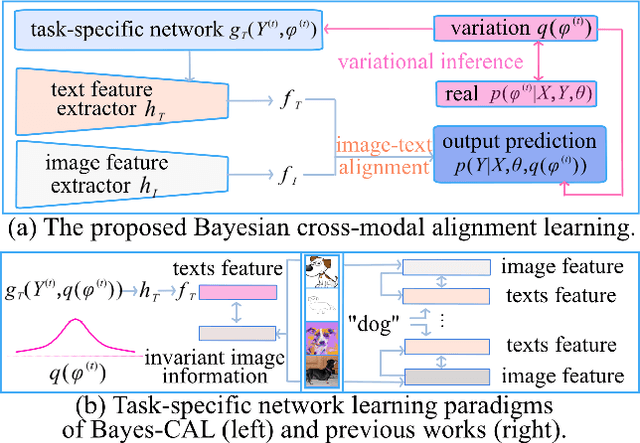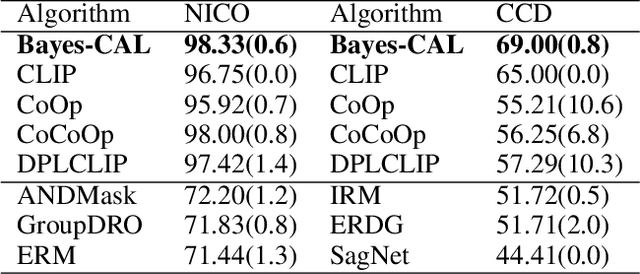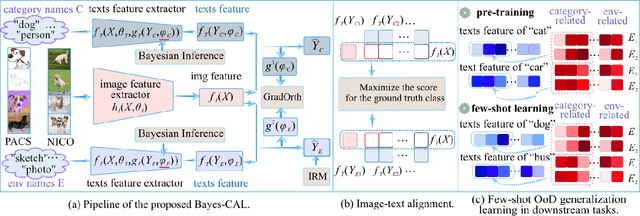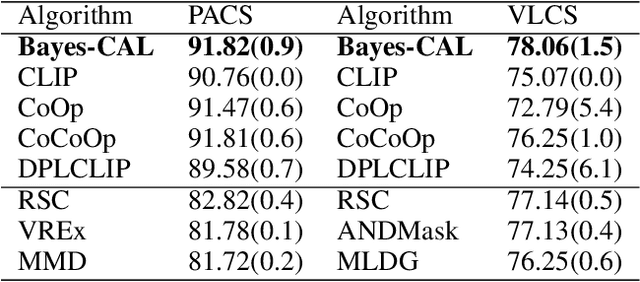Zichao Nie
InfoBound: A Provable Information-Bounds Inspired Framework for Both OoD Generalization and OoD Detection
Apr 13, 2025



Abstract:In real-world scenarios, distribution shifts give rise to the importance of two problems: out-of-distribution (OoD) generalization, which focuses on models' generalization ability against covariate shifts (i.e., the changes of environments), and OoD detection, which aims to be aware of semantic shifts (i.e., test-time unseen classes). Real-world testing environments often involve a combination of both covariate and semantic shifts. While numerous methods have been proposed to address these critical issues, only a few works tackled them simultaneously. Moreover, prior works often improve one problem but sacrifice the other. To overcome these limitations, we delve into boosting OoD detection and OoD generalization from the perspective of information theory, which can be easily applied to existing models and different tasks. Building upon the theoretical bounds for mutual information and conditional entropy, we provide a unified approach, composed of Mutual Information Minimization (MI-Min) and Conditional Entropy Maximizing (CE-Max). Extensive experiments and comprehensive evaluations on multi-label image classification and object detection have demonstrated the superiority of our method. It successfully mitigates trade-offs between the two challenges compared to competitive baselines.
 Add to Chrome
Add to Chrome Add to Firefox
Add to Firefox Add to Edge
Add to Edge